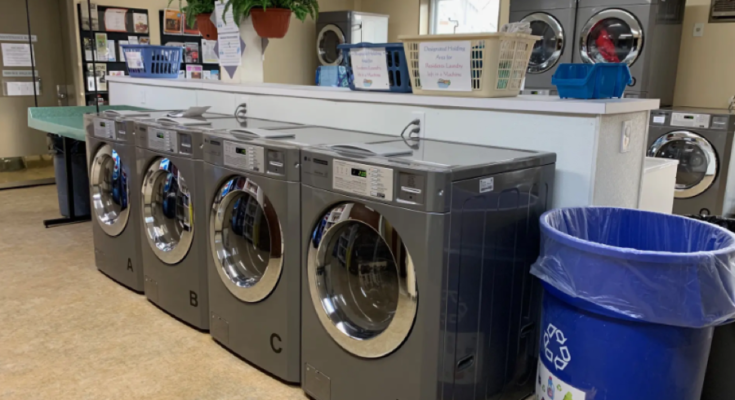In an era where sustainability and eco-friendliness are paramount, industries across the board are re-evaluating their practices to reduce environmental impact. One sector making significant strides in this area is the commercial laundry industry. By adopting advanced technologies and sustainable practices, commercial laundry services are leading the way towards a greener future.
The Environmental Impact of Traditional Laundry Practices
Traditional laundry practices have long been associated with high water consumption, energy usage, and the release of harmful chemicals into the environment. Conventional washing machines and dryers consume vast amounts of water and electricity, contributing to resource depletion and greenhouse gas emissions. Additionally, the detergents and cleaning agents used often contain phosphates and other pollutants that can harm aquatic life when they enter water systems.
These environmental concerns have prompted a shift towards more sustainable and eco-friendly laundry services. By integrating innovative technologies and green practices, the industry is mitigating its environmental footprint and promoting a cleaner, healthier planet.
Innovative Technologies Driving Change
The adoption of advanced technologies is at the heart of the transformation within commercial laundry services. High-efficiency washing machines and dryers now dominate the market, significantly reducing water and energy consumption. These machines are designed to use less water per cycle and operate at lower temperatures, resulting in substantial energy savings.
Moreover, ozone laundry systems have emerged as a game-changer. Ozone, a powerful oxidising agent, is used to clean and sanitise laundry more effectively than traditional methods, requiring lower water temperatures and less detergent. This not only cuts down on energy use but also extends the life of fabrics, reducing the frequency of replacement and further minimising waste.
Green Detergents and Cleaning Agents
The move towards sustainability in laundry services also involves the use of environmentally friendly detergents and cleaning agents. Green detergents are biodegradable and free from harmful chemicals like phosphates, optical brighteners, and synthetic fragrances. These products are designed to break down naturally without causing harm to ecosystems, ensuring that wastewater leaving the laundry facilities is less polluting.
Enzyme-based detergents are another innovative solution. These detergents use natural enzymes to break down stains and soils at lower temperatures, reducing the need for hot water and energy. By incorporating such eco-friendly products, laundry services not only safeguard the environment but also offer a safer alternative for individuals with sensitivities to harsh chemicals.
Water Recycling and Conservation
Water conservation is a critical component of sustainable commercial laundry practices. Advanced water recycling systems enable the reuse of water within the laundry process, significantly reducing overall water consumption. Greywater recycling, for instance, involves treating and reusing water from washing machines for subsequent wash cycles. This not only conserves water but also lowers the demand on municipal water supplies and reduces wastewater discharge.
In addition, commercial laundry services are implementing technologies that optimise water usage. Sensor-based systems can detect the size and weight of each laundry load, adjusting water levels accordingly to prevent wastage. Such intelligent water management systems ensure that only the necessary amount of water is used, promoting efficiency and sustainability.
Energy Efficiency and Renewable Energy Integration
Energy efficiency is another crucial aspect of eco-friendly laundry services. Modern equipment is designed to operate with minimal energy consumption, incorporating features such as heat recovery systems that capture and reuse heat from dryers. This reduces the overall energy demand and lowers operating costs.
Furthermore, many commercial laundry facilities are integrating renewable energy sources into their operations. Solar panels and wind turbines are being installed to generate clean, renewable energy on-site. By harnessing the power of the sun and wind, these facilities can reduce their reliance on fossil fuels and decrease their carbon footprint.
The Role of Certifications and Standards
Achieving sustainability and eco-friendliness in commercial laundry services is also driven by adherence to industry certifications and standards. Certifications such as the ISO 14001 (Environmental Management System) and the Green Seal Standard for Laundry Services provide guidelines and benchmarks for environmental performance. Facilities that achieve these certifications demonstrate their commitment to sustainability and continuous improvement.
Additionally, third-party audits and assessments help ensure compliance with these standards, fostering transparency and accountability within the industry. By meeting and exceeding these benchmarks, laundry services can gain the trust of their clients and contribute positively to environmental conservation efforts.
Conclusion:
The evolution of commercial laundry services towards sustainability and eco-friendliness marks a significant step in environmental stewardship. Through the adoption of advanced technologies, the use of green detergents, water recycling, energy efficiency measures, and adherence to industry standards, the sector is reducing its ecological impact and promoting a healthier planet.
As businesses and consumers alike prioritise sustainability, the demand for eco-friendly laundry services will continue to grow. By embracing these practices, the industry not only addresses environmental concerns but also sets a powerful example for other sectors to follow, paving the way for a cleaner, greener future.




